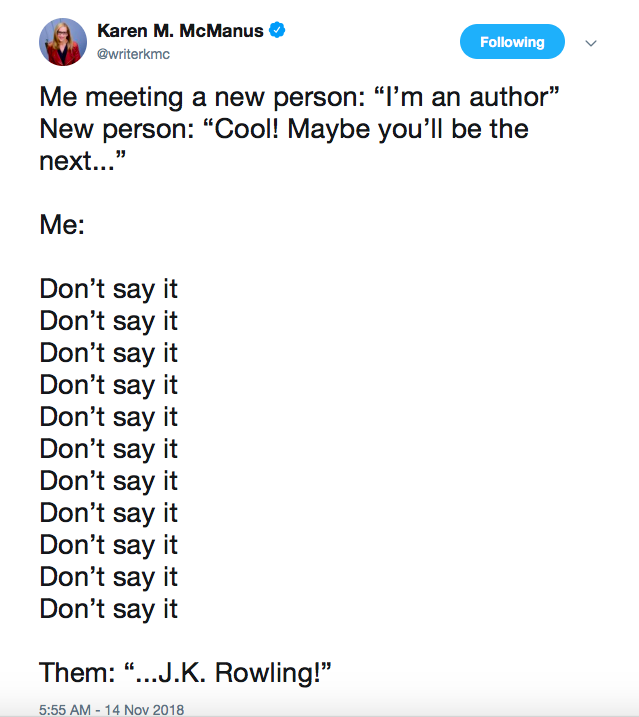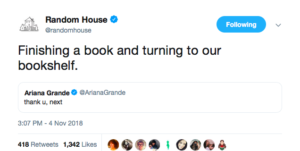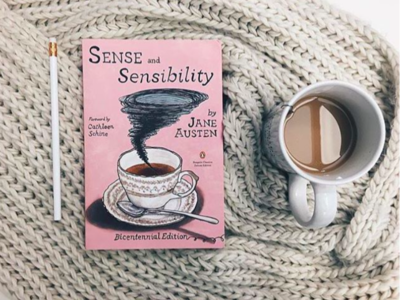The life of any artist, especially that of a full-time writer, won’t feel like the easiest path. It comes with many rejections, tough criticisms and lots of side jobs just to keep your passion alive. You know you were meant to write when you have to write in the same way you need to eat food and drink water—to basically survive. While the career path of a writer might feel like driving through the fog in a dark road, all that remains important are the few feet visible in front of you. Start with what you know and use that to fuel your passion and guide you on your ride to becoming the writer you envisioned you’d be for all those hungry readers out there.
Here’s how to become a full-time writer.
What does a full-time writer do?

As a full-time writer, your job may vary from columnist, to poet, to fiction author.
Being a full-time writer means:
1. Writing every day
2. Reading your work—and other works—every day
3. Editing
4. Deleting and re-writing
5. Researching for whatever you’re writing, whether that’s an article or a book.
6. Sending out your work to your supervisors (literary agents, editors, etc.)
7. Getting feedback and using it to re-edit your work
8. Starting again on step #1.
What does it take to become a full-time writer?

While you don’t need any degree to become a writer, studying English or creative writing will not only polish your writing skills, but link you to professors that have connections and experience in that field. I have taken a couple writing workshops at the University of Florida that have allowed me to receive constructive criticism on my writing, while also learning from my peers and the stories they have written. Many writers continue on to receive an MFA, a master’s in creative writing. Getting a master’s degree further exposes you to professional writers in the classroom that will strengthen your writing skills. In order to apply for an MFA, you only have to turn in a portfolio of your writing works—no GRE needed, thankfully.
What you should know about becoming a full-time writer

No, choosing a career as a writer doesn’t mean you’ll starve. While many people believe writers either make millions or earn zero, the career does have a middle ground. Think about it: how many authors have you never heard of when going into a bookstore? Whether an author has just started their writing career or haven’t yet gotten publicly recognized, their books remain featured in a bookstore, right? That in itself fulfills most writers’ dreams. According to the Bureau of Labor Statistics, authors earn an average of $55,420 a year. Getting a deal with a big publishing company like Penguin Random House or HarperCollins Publishing would mean a higher compensation. While you can go the self–publishing route, making a profit might prove more challenging. One of the benefits of being a full-time writer means making your own schedule. Nonetheless, if you’ve signed with a publishing company you will have deadlines to make.
Pros: You can write, re-write and edit from the comfort of your own home.
Cons: According to Forbes.com, while publishing sales continue to rise, authors continue to earn less. Why? Publishing companies have increased pressure, especially with the rise of Amazon, to stay profitable. An author’s compensation, unfortunately, becomes one of the first things sacrificed.
Don’t lose hope. While self-publishing has been known to have risks, Forbes.com has also shown that authors that have self-published via Amazon.com through e-books, have been striking gold, saving money by not having to pay for the production of physical copies. A study showed that over 1000 authors made more than $100,000 in royalties and over 2000 authors made more than $50,000 for the year of 2017.
Skills you need to become a full-time writer

1.First a reader
Every aspiring writer started as a reader. Books not only feed, but fuel a writer. It allows for creativity and inspiration to grow. On the technical side, reading books allows our writing skills to grow; teaching us syntax, grammar, punctuation and spelling even when we don’t realize it.
2. Second a writer
Consistency with writing builds a different kind of muscle. Just as if you would exercise a muscle group, working out one day of the week won’t produce the most effective results. However, exercising a few days of the week will quickly make you stronger and bring you closer to your goals. Similarly, writing every day strengthens your writing skills, while allowing you to find your writing style and use that to build your stories. “Learn how to start and finish your projects. That’s one of the most challenging parts of being a novelist,” New York Times bestseller of “When Dimple Met Rishi,” Sandhya Menon said. In Malcolm Gladwell’s novel, “Outliers,” he writes that in order to become an expert in your field, you must put in at least 10,000 hours of work. Yes. Hours. Not minutes. But don’t freak out, give yourself a goal. I find that I set a goal, and somehow get lost in my own writing. I’ll plan to write for a couple of hours, and then all of a sudden five hours have past and I realize I have an assignment I still haven’t done that is due. No regrets. Ever. Getting lost in my writing fulfills me in a way that no other thing can.
3. Personal Branding
Connect with other authors. Who you know leads to connections, which leads to better opportunities. Attending writing conventions where you can meet not only authors, but literary agents can also open doors for you. “The sooner you put yourself out there, imperfections and all, the sooner you’ll learn to accept rejection and overcome fears. Just do it,” author Heather Chapman said.
4. “Kill your darlings”
Oh goodness, the amount of times I’ve had a creative writing teacher say this to me. As a writer, you become attached to your words. Even when you know the words don’t work, we can’t let go. Unfortunately, this leads to the demise of your work. A lot of the writing process includes writing, editing, deleting and re-writing. If you can’t kill your darlings, you’ll stay hung up on the words that don’t work for your story anyways. Let go and make room for more creative space.
Reviews
“Try many avenues—magazine articles, traditional publishing, indie. There’s money to be made in each of the ways, and the most lucrative option is often indie. I’ve done both traditional and indie. Success comes to each author differently,” romance author of “The Forgotten Girl,” “The Second Season,” and “Unexpected Love: A Marriage of Convenience Anthology,” Heather Chapman said.
“I’d say try and write a little every day. Even if it’s just one paragraph. Always be listening—every person is a story. And any idea is valuable. Always carry a little notepad or your notes app and make note of every new idea. Save them. One day, a bunch of them could build a whole story,” Young adult author of “Scream All Night,” Derek Milman said.
“Whatever you’re working on, finish. It’s easy to be distracted by whatever new idea feels exciting in the moment, but you won’t learn every part of writing unless you finish, and you won’t have the opportunity to receive professional readership and feedback. Every writer ever has hated their manuscript and felt like finishing is impossible—push through!” Young adult authors of “Always Never Yours,” Emily Wibberley and Austin Siegemund-Broka said.
“My advice to new writers is to hold tight to what you love about the story you’re creating. You will struggle with the writing process at some point. You have to remind yourself why you wanted to write that particular story in the first place. Maybe you envision a certain reader who needs to hear your words. Maybe you just love your characters or your setting. Why you do it doesn’t have to make sense to anyone but you. So find your joy. Your work matters,” author of “What You Left Me” and “When the Light When Out” Bridget Morrissey said.



















